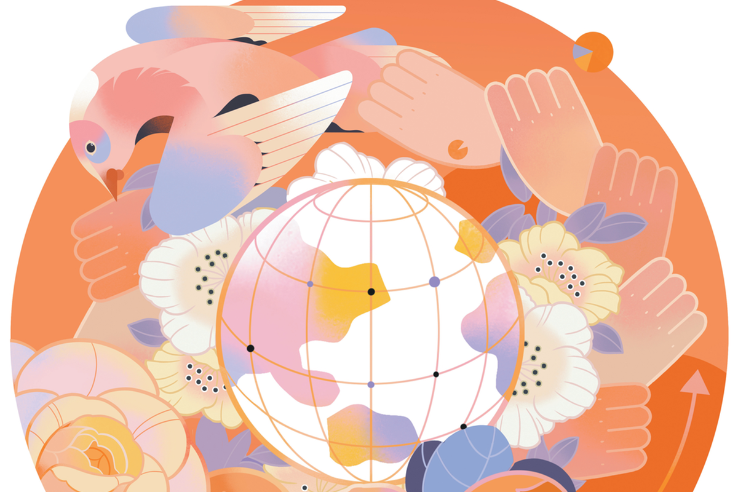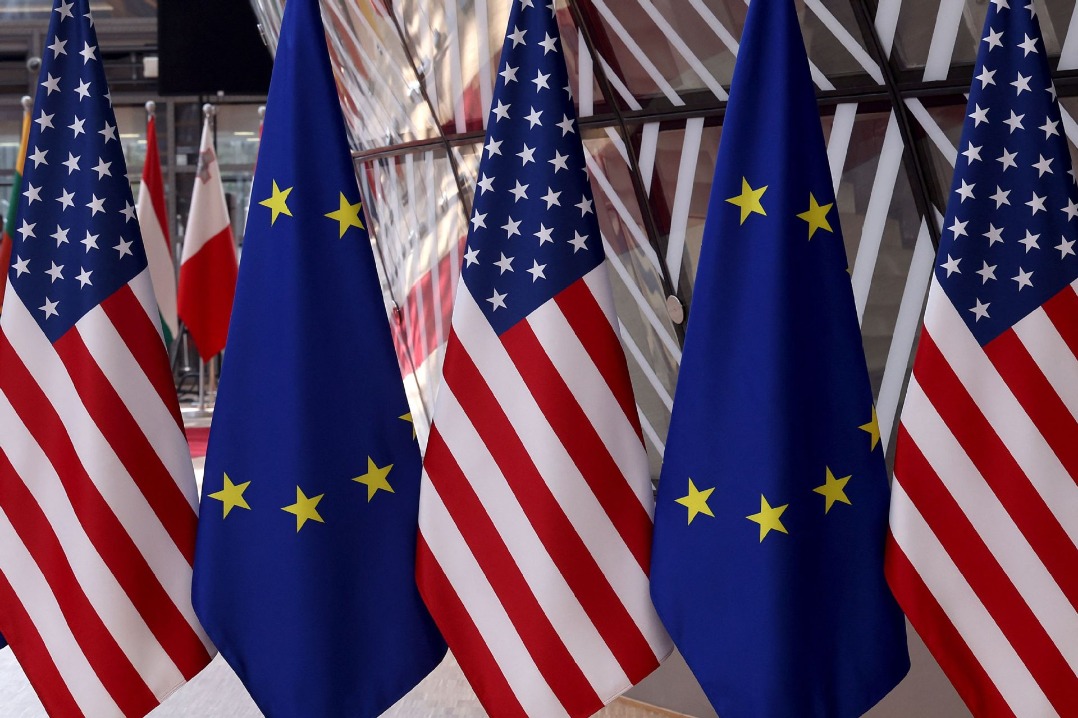Civility under siege in the US, and not just in politics and social media

The seventh annual Civility in America survey has found that three out of four (75 percent) of us feel that incivility has risen to a crisis level (that's up from 65 percent in 2014). The study, presented by the Protocol School of Washington, found the three top culprits are politicians, internet/social media and news media.
Most people realize that politicians are beyond hope, and the Wild West of social media is a genie that is never going back in its bottle, but not all news media are hotbeds of rudeness and lack of manners.

China Daily USA certainly isn't. I have worked in offices where political intrigue and backstabbing seethed constantly just beneath the surface of the most polished and mannerly behavior, which is the eeriest kind of incivility, really.
But here at China Daily, there has never been a more authentically sincere and polite group of people to work with, and I'm not just saying that because my annual review is coming up. I don't know if it's the Confucian tradition or Taoist DNA passed down through generations over the millennia, but people around here are really polite, all the time.
Dr Jia Wang, an associate professor of human resource development at Texas A&M University, warns that, in general, workplace incivility is taking over America's organizations, professional relationships and everyday interactions.
And, she says, understanding why incivility happens and how to address it starts with awareness.
"When we think about incivility we think about something major, but it doesn't have to be," Wang said. "Most of the time it's the little things accumulated in your daily life that make a huge impact."

When incivility happens and it affects enough employees, it can impact productivity and, eventually, an organization's bottom line.
Uncivil acts, also termed microaggressions, have been cited as a major cause of employee turnover, poor workplace climate and job dissatisfaction.
Little things like "the cell yell", as the Protocol School of Washington calls it - people tend to speak three times louder on a cell phone than in person - not respecting a person's space (10 feet's a safe distance), not cleaning up your mess in the kitchen, gossiping or "over-sharing about your own personal life" should be avoided.
"Many people experience incivility, but they choose not to speak up because they need the job or worry about retribution," Wang said. "I want to help people to be courageous and say 'this is not right and it needs to stop.'"
So, what can an organization do to reduce and prevent incivility in the workplace?
Wang says it starts at the top with the organization's leadership. To make a change in the workplace, leaders need to develop behavior statements that define what qualifies as uncivil on both the personal and organizational level.
Bosses should hold workshop sessions and brainstorm on many things they have observed and experienced that they consider uncivil, Wang says.
Leaders also need to look at their own actions and determine whether they are being civil to their employees. They also need to be willing to take feedback from colleagues.
Unfortunately, a lot of people - including CEOs and corporate leaders - are not willing to discuss uncivil behavior because it is uncomfortable and often confrontational.
Wang recommends making small, daily changes such as starting a meeting to discuss bad behavior a company wants to stop and good behavior that deserves recognition.
"To me, incivility is a culture thing, and culture change does not happen overnight," she says. "But you can educate people to be culturally aware and culturally competent."
Bottom line: a company's values need to be reinforced. Wang says setting clear civility standards is not enough to put an end to uncivil behavior, especially if they are just posted in hallways or talked about once a year.
Continually reviewing and talking about an organization's behavior statements shows employees that the leadership team isn't just checking off a box, but that it really cares about changing the climate.
Contact the writer at chrisdavis@chinadailyusa.com.
(China Daily USA 11/03/2017 page2)
Today's Top News
- Yasukuni visit would add insult to injury: China Daily editorial
- Judicial reform critical for modernizing governance
- Effective use of investment emphasized
- China's shuttle diplomacy strives to reach ceasefire
- Nanjing Museum's handling of donated art, relics being probed
- Key role of central SOEs emphasized






























